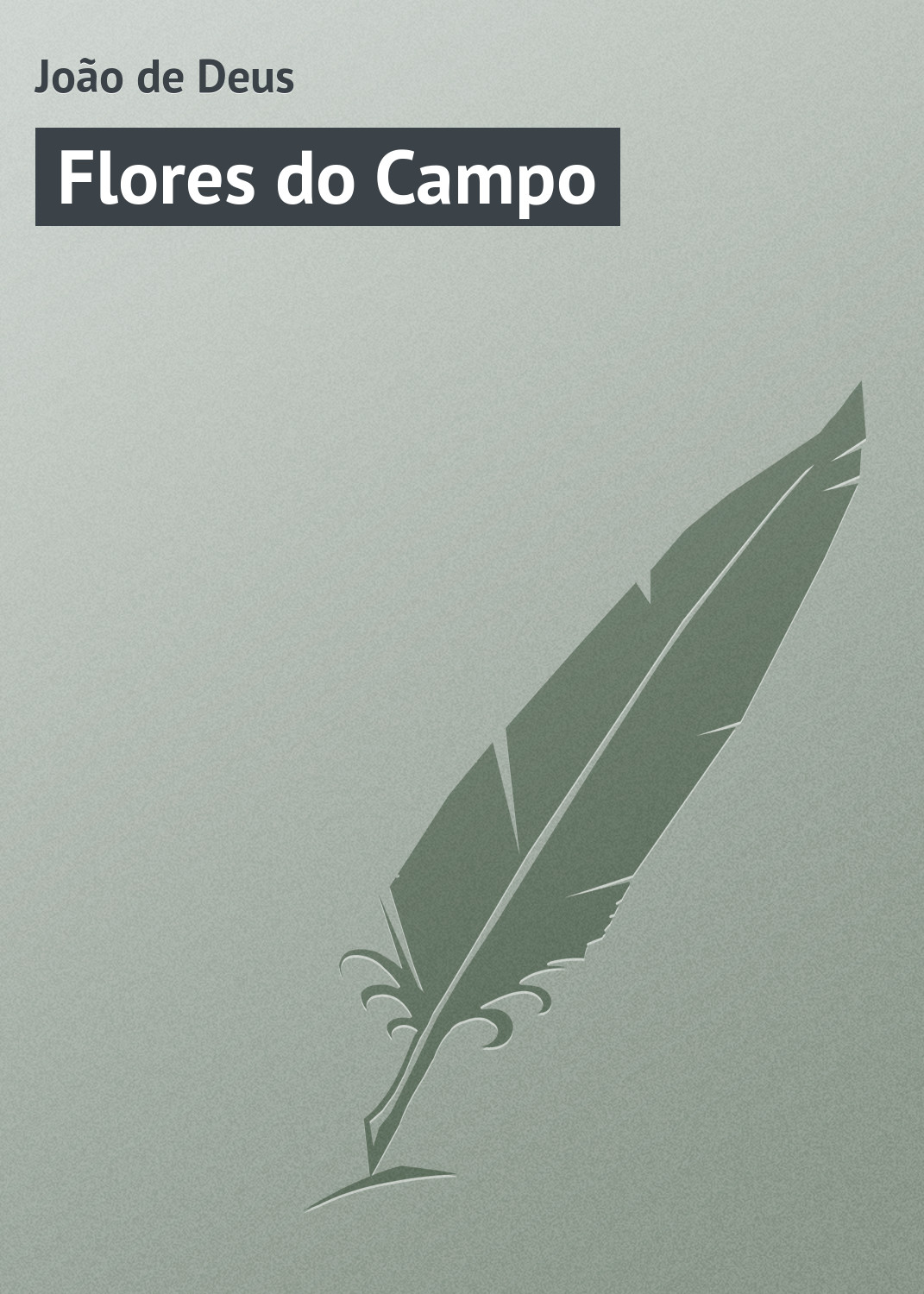Электронная книга: João de Deus «Flores do Campo»

|
Издательство: "Public Domain"
электронная книга Скачать бесплатно на Litres |
João de Deus
:"This article is about the Portuguese poet; for the Brazilian psychic, see
João de Deus Ramos (
In the volume of his art, as in the conduct of life, he practised a rigorous self-control. He printed nothing previous to 1855, and the first of his poems to appear in a separate form was "A Lata", in 1860. In 1862 he left
In the year of his election as deputy, his friend José António Garcia Blanco collected from local journals the series of poems, "Flores do campo", which is supplemented by the "Ramo de flores" (1869). This is João de Deus' masterpiece.
"Pires de Marmelada" (1869) is an improvisation of no great merit. The four theatrical pieces -- "Amemos o nosso próximo", "Ser apresentado", "Ensaio de Casamento", and "A viúva inconsolável" -- are prose translations from
He married Guilhermina das Mercês Battaglia, born in
As an indication of a strong spiritual reaction three prose fragments (1873) "Anna, Mãe de Maria, A Virgem Maria" and "A Mulher do Levita de Ephraim" translated from Darboy's "Femmes de la Bible", are full of significance. The "Folhas soltas" (1876) is a collection of verse in the manner of "Flores do campo", brilliantly effective and exquisitely refined.
Within the next few years the writer turned his attention to educational problems, and in his "Cartilha maternal" (1876) first expressed the conclusions to which his study of Pestalozzi and Frobel had led him. This patriotic, pedagogical apostolate was a misfortune for Portuguese literature; his educational mission absorbed João de Deus completely, and is responsible for numerous controversial letters, for a translation of
By a lamentable error of judgment, some worthless
Braga has noted five stages of development in João de Deus' artistic life: the imitative, the idyllic, the lyric, the pessimistic and the devout phases. Under each of these divisions is included much that is of extreme interest, especially to contemporaries who have passed through the same succession of emotional experience, and it is highly probable that "Caturras" and "Gaspar", pieces as witty as anything in Bocage but free from Bocage's coarse impiety, will always interest literary students. But it is as the singer of love that João de Deus will delight posterity as he delighted his own generation. The elegiac music of Rachel and of ma, the melancholy of "Adeus" and of "Remoinho", the tender and sincerity of "Meu casto lírio", of "Lágrima celeste", of "Descale" and a score more songs are distinguished by the large, vital simplicity which withstands time. It is precisely in the quality of unstudied simplicity that João de Deus is incomparably strong. The temptations to a display of virtuosity are almost irresistible for a Portuguese poet; he has the tradition of virtuosity in his blood, he has before him the example of all contemporaries, and he has at hand an instrument of wonderful sonority and compass. Yet not once is João de Deus clamorous or rhetorical, not once does he indulge in idle ornament. His prevailing note is that of exquisite sweetness and of reverent purity; yet with all his caressing softness he is never sentimental, and, though he has not the strength for a long fight, emotion has seldom been set to more delicate music. Had he included among his other gifts the gift of selection, had he continued the poetic discipline of his youth instead of dedicating his powers to a task which, well as he performed it, might have been done no less well by a much lesser man, there is scarcely any height to which he might not have risen.
References
*1911
Источник: João de Deus
Другие книги схожей тематики:
| Автор | Книга | Описание | Год | Цена | Тип книги |
|---|---|---|---|---|---|
| João de Deus | Flores do Campo | — Public Domain, электронная книга Подробнее... | электронная книга |
См. также в других словарях:
Francisco Flores del Campo — Saltar a navegación, búsqueda Francisco Flores del Campo (n. Santiago de Chile, 1907 † Santiago de Chile, 1993) fue un compositor, intérprete y actor, considerado uno de los compositores más populares y relevantes de la Nueva Canción Chilena del… … Wikipedia Español
Las margaritas son flores del campo — Álbum de Mojinos Escozíos Publicación 2001 Grabación – Género(s) Rock Duración – … Wikipedia Español
Flores de Bach — Flores de Bach, también llamadas remedios florales de Bach o esencias florales de Bach, es la denominación genérica y comercial de un conjunto de 38 preparados naturales no farmacológicos, símil homeopáticos, elaborados a partir de una decocción… … Wikipedia Español
Flores (Buenos Aires) — Saltar a navegación, búsqueda Flores Datos Población 150.484 hab … Wikipedia Español
Campo (heráldica) — Saltar a navegación, búsqueda El campo en el sentido estricto designa en heráldica el fondo del escudo. En un primer sentido ampliado, el campo designa también la manera en la que el fondo del escudo en su conjunto es tratado. Designa entonces el … Wikipedia Español
Campo Grande (Misiones) — Saltar a navegación, búsqueda Para otros usos de este término, véase Campo Grande. Campo Grande … Wikipedia Español
